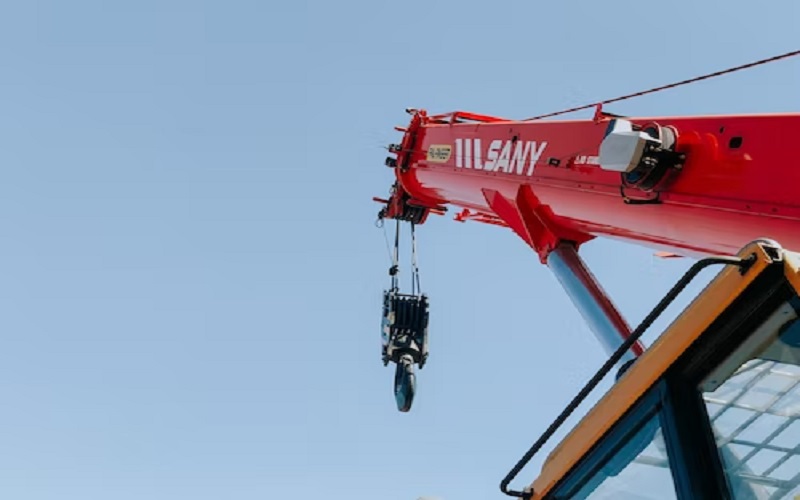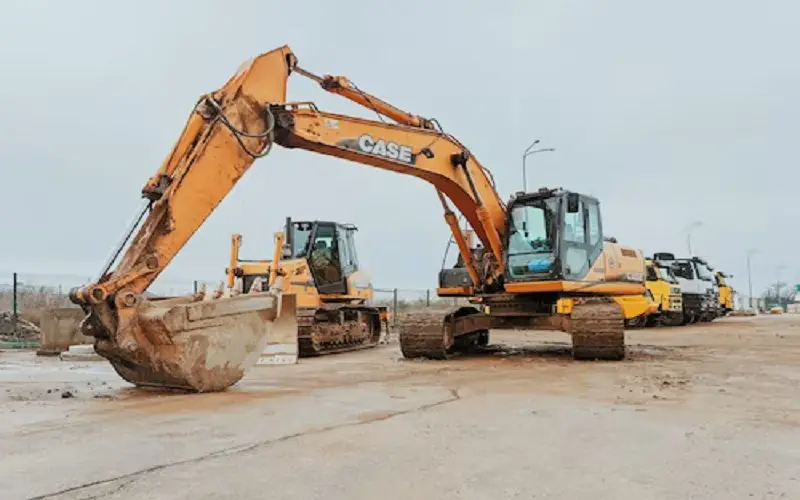Getting into the construction industry and expanding your business can take time and effort. With so much competition, you need to ensure that you have the right tools and machines to stay ahead of the curve. Luckily, there are plenty of devices available that can help you expand your business and increase productivity. Here’s a look at six essential machines for any construction business looking to grow:
1) Excavator
An excavator is a versatile machine that can be used in many different ways in the construction industry. It’s most commonly used for digging, trenching, material handling, and demolition work. The operator sits in a cab attached to an arm with multiple joints allowing it to rotate 360 degrees and move up and down. The arm also has an adjustable boom so that the operator can reach various heights and depths depending on their work.
Depending on size and purpose, the excavator is powered by either diesel or electric motors. It typically features rubber tracks or steel treads which provide stability when moving around uneven terrain or slippery surfaces. For those working on soft terrain, a floating excavator might be a better option as it can drive on top of the surface instead of digging into it. Excavators can also be equipped with attachments such as buckets, rippers, grapples, and breakers to increase their versatility in any construction project further.
2) Loaders
Loaders are typically used for loading and unloading material such as dirt, gravel, sand, rock, or debris. They feature an articulated arm operated by the operator sitting in the cab. The arm has a bucket on the end which can be used to scoop, lift and transport the material. Loaders are also commonly equipped with attachments such as forks, blades, or rakes which can help with specific tasks.
These machines come in various sizes and capacities depending on the size of your construction project. If you’re dealing with large amounts of material, consider looking into a wheel loader or skid steer loader. Wheel loaders feature large tires so they can easily move over uneven terrain, while skid steer loaders have four-wheel drive allowing them to maneuver with precise control.
3) Cranes
Cranes are primarily for lifting and moving heavy materials such as steel beams, precast concrete, and equipment. They typically feature a large boom arm operated by the operator sitting in the cab. The arm can be adjusted to reach various heights and depths depending on what materials need to be lifted or moved.

The size and capacity of the crane you need will depend on what type of project you’re working on. Consider looking into a truck-mounted crane or lattice boom crane for larger projects, as they have higher lifting capacities and can reach greater heights. Smaller projects require an articulated crane which is more maneuverable due to its ability to rotate from side to side.
4) Bulldozers
Bulldozers are used for pushing, grading, and leveling large amounts of dirt and other materials. The operator sits in a cab and controls the cutting edge or blade, which is mounted on the front of the machine. Bulldozers come in various sizes, ranging from small models, which can be used for residential projects, to large bulldozers, which are suitable for commercial construction sites.
If you’re dealing with rocky terrain or tight spaces, consider looking into a tracked bulldozer. These machines have tracks instead of wheels and offer better maneuverability over uneven surfaces. A wheeled bulldozer will be more suitable when working with steep slopes as it provides greater traction to prevent accidental slips or slides.
5) Pavers
For creating paved surfaces, such as driveways, parking lots, or sidewalks, you can use a paver. The operator must first spread a gravel or other material layer to create a base. They then use the paver to lay down asphalt, concrete, or brick pavers in whatever pattern they require. The machine is like a large conveyor belt with an adjustable screed on the end, which helps level and compact the material.
With larger projects, it’s often more cost-effective to rent a paver or hire a contractor with access to one. Smaller projects can be completed with smaller machines, such as ride-on pavers, which are ideal for residential applications.
6) Generators
Generators are essential for providing power to construction sites. They come in various sizes and fuels, ranging from small portable units which run on gasoline or diesel to large stationary units which can be connected directly to the electricity grid.
They provide a reliable power source when other resources aren’t available, allowing you to power lights, tools, pumps, and other equipment at the site. They are also great for providing temporary power in emergencies or when you need to supply electricity to remote locations.
By investing in quality machinery, you’ll be well-equipped to handle any job that comes your way. Investing in the right machines will help ensure you can get the job done efficiently and cost-effectively. So, research your options carefully before choosing the right machines for your construction business.




